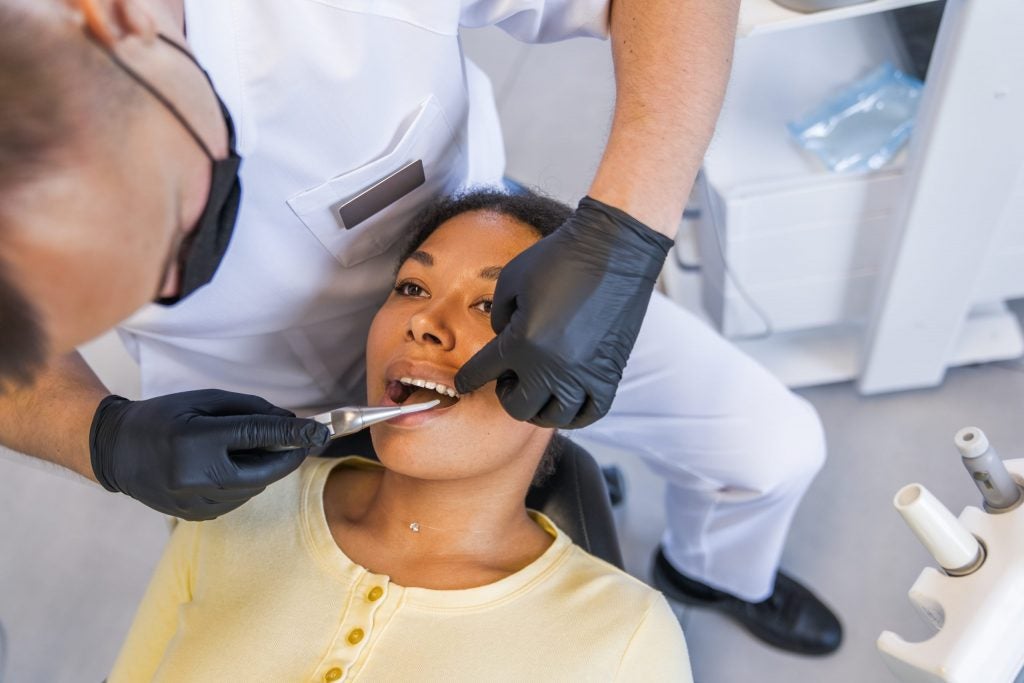Dentist Endeavour Hills - Trusted Oral Practice
Dentist Endeavour Hills - Trusted Oral Practice
Blog Article
The Power of Preventive Dentistry: Provider That Safeguard Your Smile
In the world of dental care, the importance of precautionary dentistry can not be overstated. By proactively dealing with oral health and wellness problems before they rise into more severe problems, individuals can maintain not just the aesthetics however also the capability of their smiles. From regular cleansings to targeted therapies like sealants and fluoride applications, these services play an essential role in guarding oral well-being. However, real power of preventive dentistry lies not only in the solutions themselves however additionally in the effect they can have on lasting oral wellness outcomes.

Importance of Preventive Dental Care
Preventative dental care plays a critical function in preserving optimal dental health and wellness by concentrating on proactive actions to stop oral issues prior to they rise (best dentist endeavour hills). Routine oral examinations, expert cleansings, and individual education are vital elements of preventive dental care. By going to routine visits, individuals can resolve any prospective troubles beforehand, saving time, cash, and discomfort in the future
Precautionary dentistry highlights the significance of excellent oral health practices, such as cleaning and flossing daily, to stop the build-up of plaque and tartar. These habits, when incorporated with professional cleansings, aid preserve healthy and balanced teeth and gums, minimizing the risk of tooth cavities, gum tissue illness, and various other oral health and wellness concerns.
Additionally, preventative dentistry includes making use of protective treatments like oral sealers and fluoride applications to strengthen teeth and stop decay - orthodontist endeavour hills. These interventions are specifically helpful for children, whose establishing teeth can substantially benefit from such safety nets. In general, focusing on preventative dental care can bring about improved oral health results and a brighter, healthier smile for many years ahead
Usual Preventive Dental Solutions
Routine oral examinations and professional cleansings are important components of keeping optimal dental health via precautionary measures. Throughout a regular dental examination, a dental practitioner will thoroughly examine your teeth, gums, and on the whole mouth to identify any type of indicators of dental concerns such as cavities, periodontal condition, or oral cancer cells. X-rays might also be required to identify any type of hidden problems that are not noticeable throughout the visual assessment. Expert cleansings performed by an oral hygienist are vital for eliminating plaque and tartar build-up that regular brushing and flossing might miss. In addition, precautionary therapies such as dental sealants and fluoride applications can help protect your teeth from degeneration. Another typical preventative dental solution is dental cancer cells testings, where the dental professional look for any kind of signs of oral cancer during your routine exam. By regularly receiving these typical precautionary oral solutions, you can maintain a healthy smile and protect against potential oral illness prior to they rise.
Benefits of Normal Cleansings
Routine dental cleanings executed by an experienced oral hygienist play a crucial duty in preserving ideal oral health by efficiently getting rid of plaque and tartar accumulation that brushing and flossing alone might not address. These cleansings help protect against periodontal disease, tooth cavities, and other oral wellness problems. By getting rid of plaque, which is a sticky film of microorganisms, before it solidifies into tartar, cleanings reduce the danger of creating periodontal condition. Furthermore, normal cleanings add to fresher breath and a brighter smile by eliminating germs that can create halitosis and discolorations.
Moreover, dental cleanings can additionally assist in the early detection of dental health issue. During a cleaning, the hygienist can determine concerns such as early signs of dental caries, gum inflammation, or oral cancer. Spotting these issues at an early stage can stop them from progressing into much more serious conditions that might call for extensive treatment. Overall, scheduling regular dental cleansings is an aggressive approach to maintaining excellent dental health and preventing major dental problems in the future.
Comprehending Sealants and Fluoride Treatments
Oral hygienists not only play a pivotal role in keeping ideal oral wellness with regular cleansings however also offer beneficial precautionary treatments such as sealers and fluoride applications. Sealants are thin safety coverings related to the chewing surfaces of molars and premolars to secure them from decay-causing germs and acids. These sealants properly seal off the deep grooves and crevices where food fragments and plaque can build up, reducing the danger of cavities in those locations.
Fluoride treatments, on the various other hand, include the application of fluoride-- an all-natural mineral that assists strengthen tooth enamel and makes it a lot more resistant to acids and degeneration. This safety net can be particularly beneficial for people at a higher risk of establishing dental link caries. Regular fluoride therapies can help remineralize locations of the enamel that have been deteriorated by acid attacks, eventually preventing the development of cavities.
Stopping Oral Issues Early
To keep optimal oral wellness and prevent future dental difficulties, early intervention and aggressive care are vital components of a detailed oral hygiene regimen. Early avoidance entails routine oral check-ups, usually every six months, to find any kind of signs of dental problems in their preliminary phases. These exams allow dental practitioners to determine prospective troubles such as dental caries, gum disease, or misalignments early on, enabling timely treatment and avoiding more damage.
Along with normal check-ups, exercising good oral hygiene in the house is necessary for preventing dental concerns. This includes brushing teeth at least twice a day, flossing daily, and gargling to eliminate bacteria and food particles that can lead to degeneration and gum tissue condition. Including a well balanced diet regimen low in sugary foods and drinks also plays a significant duty in keeping dental health and wellness.
Conclusion

Throughout a regular dental examination, a dental practitioner will extensively analyze your teeth, gum tissues, and on the whole dental dental caries to identify any kind of indicators of oral problems such as tooth cavities, periodontal illness, or oral cancer.Normal oral cleanings carried out by a qualified dental hygienist play an essential role in maintaining optimum dental health and wellness by efficiently removing plaque and tartar build-up that brushing and flossing alone may not deal with. Overall, organizing normal dental cleansings is an aggressive technique to preserving good dental health and wellness and avoiding serious oral problems in the future.
To maintain optimal my website dental health and prevent future oral problems, very early intervention and proactive treatment are important components of a thorough dental health program (endeavour hills dentist). Early avoidance involves routine dental examinations, generally every 6 months, to discover any indications of oral problems in their initial phases
Report this page